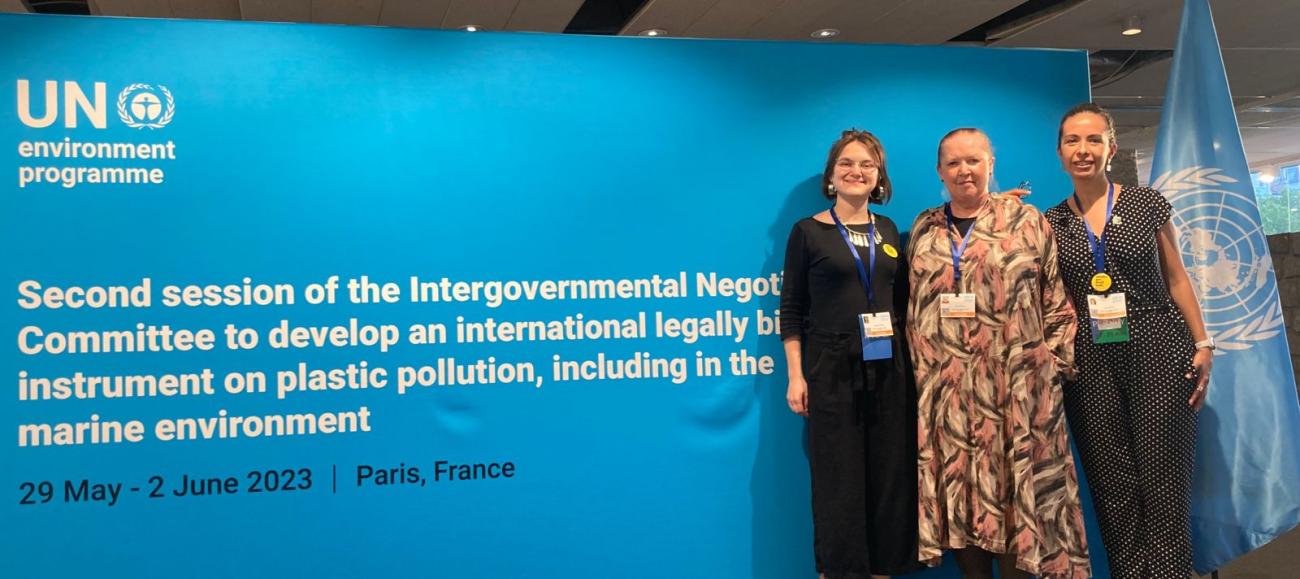Plastics have become a significant contributor to environmental degradation, causing ecosystem pollution and posing risks to human health. The current plastic production, consumption, and disposal model perpetuates the use of harmful products throughout their life cycle. The COVID-19 pandemic has further amplified the production, trade, and usage of single-use plastics in health care, emphasizing the urgent need for a comprehensive One Health approach.
It is crucial for all stakeholders in the sector, including ministries, hospitals, manufacturers, suppliers, and health professionals, to take decisive actions in addressing the health care plastics crisis.
From May 29 to June 2, 2023, the second session of the Intergovernmental Negotiating Committee (INC-2) on Plastic Pollution was held in Paris, with the primary objective of developing an international legally binding instrument on plastic pollution, including marine environments. The Health Care Without Harm delegation, including representatives from the Global and European teams, actively raised awareness and influenced global decision-makers regarding the crucial importance of not exempting the health care sector.
Andreea Zontica, Elaine Mead and Neydi Cruz at second session of the Intergovernmental Negotiating Committee (INC-2) on Plastic Pollution in Paris, France.
Since the 1990s, Health Care Without Harm has been working with health care systems and professionals to address the impact of plastic use in the sector. We aim to create a healthier and more sustainable future through sustainable procurement, replacing plastics with safer alternatives, reducing unnecessary plastic usage, proper waste management, market transformation, and policy advocacy. Plastic pollution poses threats to human health and the environment, and we urge governments to establish a legally binding global plastic treaty that tackles the issue at its source.
"We expected the delegates of INC-2 to commit to securing a legally binding treaty for reducing plastic production worldwide and phasing out toxic chemicals. In health care, we have a responsibility to do no harm. Therefore, decision-makers need to comprehend the significance of reducing single-use plastic items and developing safer alternatives that allow us to provide care without causing harm. We will continue disseminating this message to all willing to listen, especially considering children who are the most vulnerable to plastic pollution.", says Neydi Cruz, Health Care Without Harm's Sustainability associate director.
Andreea Zotinca, Circular Healthcare Project Officer at Health Care Without Harm Europe, emphasizes that the healthcare sector should not be used as an excuse to prevent us from having a strong, ambitious plastic treaty. Health Care Without Harm urges all stakeholders, including governments, to join forces in tackling the plastic pollution crisis head-on. By adopting safer, reusable alternatives and supporting a legally binding global plastic treaty, we can safeguard human health and protect our environment for future generations.
Learn more about our work on plastics: noharm-global.org/plastics
